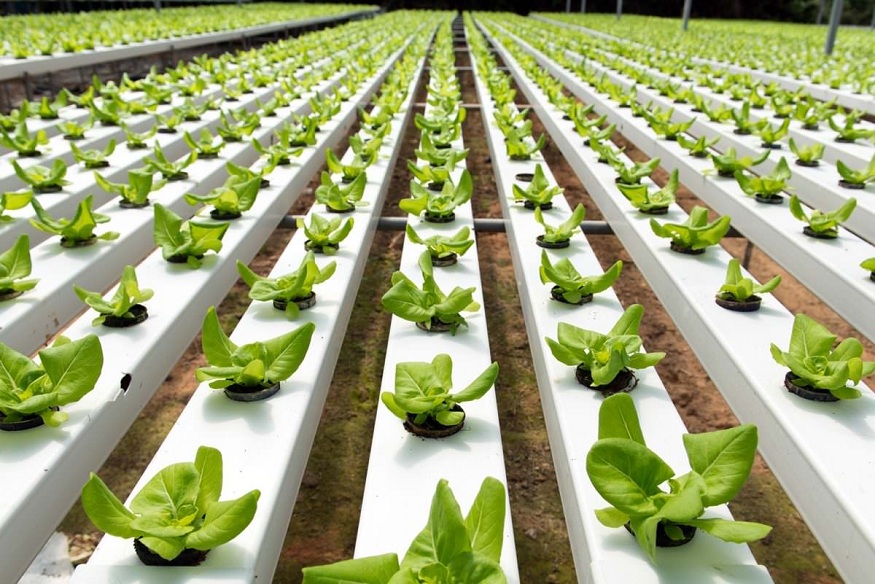Hydroponics is steadily gaining traction in India, attracting an increasing number of farmers. Hydroponics is a subset of hydroculture, which is a way of growing plants, mainly crops, without soil utilising mineral fertiliser solutions in an aqueous solvent. Hydroponic farming, which is soil-free, water-based farming, may be done even in a small place like a balcony. Instead of using soil for plant nutrition, crops are given nutrient-rich water, which avoids a lot of the drawbacks of soil-based methods.
Urban farmers are increasingly turning to hydroponics, a water-saving way of producing pesticide-free fruit on rooftops and terraces. According to estimates, India’s hydroponics industry would increase at a CAGR of 13.53 percent between 2020 and 2025.
Hydroponics farming is a sort of hydroculture in which plants are grown in a water solvent containing mineral and fertiliser solutions without the need of soil. Only the roots of terrestrial plants can be cultivated, either with the roots exposed to the nutritive liquid or physically supported by a medium such as gravel.
Photosynthesis is a process in which plants use sunlight and a chemical called chlorophyll found inside their leaves to transform carbon dioxide and water into glucose and oxygen, as seen in the reaction.
Hydroponic farming is beneficial because of various reasons:
1. Plantation in the absence of soil
Plants can be grown in regions where land is scarce, non-existent, or polluted. Hydroponics farming was a successful technology utilised to offer fresh vegetables for troops on Wake Island in the early time period. NASA has identified it as the future agricultural method for growing meals for humans in space.
2. Better space and location use
Because all of the plants’ needs are supplied and maintained through a system, you can grow plants in a tiny apartment, bedroom, or kitchen if you have enough space. Plant roots generally extend and spread out in search of food and oxygen in the soil, but with hydroponics, roots are submerged in an oxygenated nutrient solution and come into direct touch with critical minerals. As a result, you’ll be able to grow your plants closer together and save a lot of room.
3. Controlling the weather
Climate, temperature, humidity, light, and air composition are all under the control of hydroponic farmers. That is, regardless of the season, you can grow foods all year. Planting crops at the correct time can help farmers enhance their revenues.
4. Conserving water
Because water is recirculated in this approach, hydroponically grown plants can use 10% less water than field-grown plants. Plants will absorb the required water, while run-off water will be collected and re-circulated back into the system. Only evaporation and system leaks will cause water loss in this system making hydroponic farming beneficial.
5. Nutrient utilisation
You have total control over the nutrients (foods) that plants require with this strategy. Farmers can identify what the plants require before planting, as well as the amount of nutrients needed at different stages and the proportions in which they should be mixed with water.
6. A higher pace of growth
Is it true that hydroponic plants develop faster than plants grown on soil? Yes, since temperature, sunlight, moisture, and, most importantly, nutrients are all environmental elements that encourage plant development. Nutrients are delivered in adequate quantities and make direct contact with the root systems when plants are placed in proper locations. As a consequence, plants don’t waste energy looking for diluted nutrients in the soil, instead concentrating on development.



